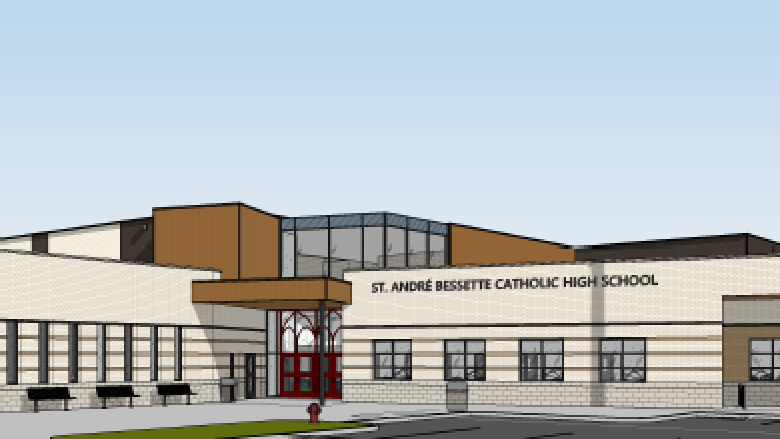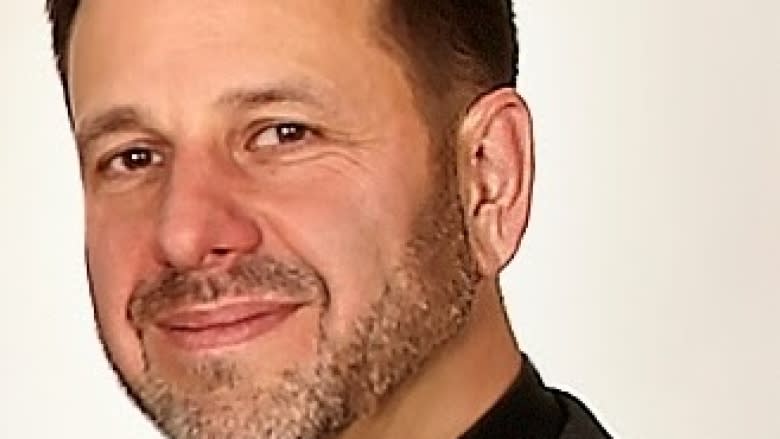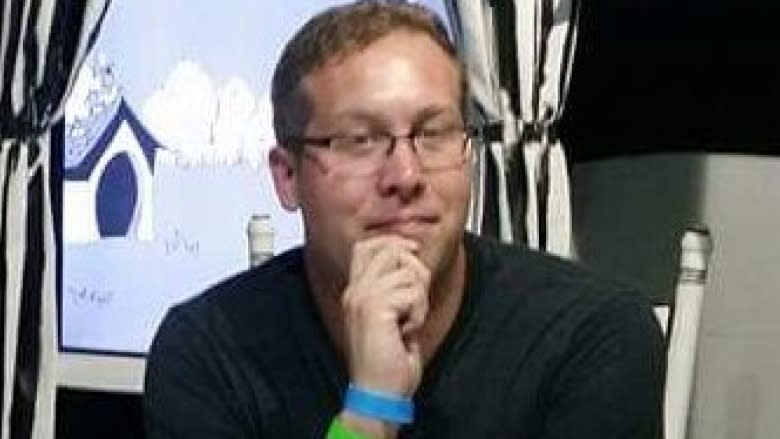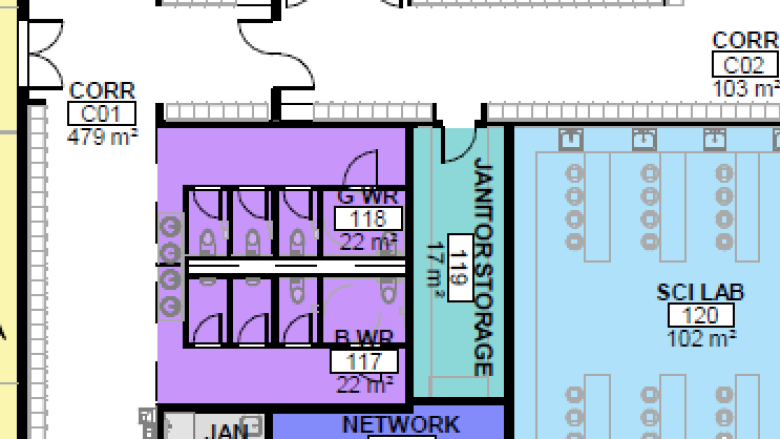Gender-neutral washrooms at new Fort Saskatchewan school earn praise from transgender advocate
A high school under construction in Fort Saskatchewan is setting the standard for schools when it comes to accommodating transgender students, says a transgender rights advocate.
All students attending the new St. André Bessette school will use gender-neutral multi-stalled toilets.
"[Elk Island Catholic Schools] is setting a bar for all schools and school boards to follow in making our public spaces safer and more accessible, especially for trans and gender-nonconforming persons," said Bryan Mortensen, executive director of the altView Foundation for Gender Variant and Sexual Minorities.
Providing inclusive washrooms was a priority when planning the school, said EISC superintendent Michael Hauptman.
"This way it doesn't matter which cubicle you use," Hauptman said. "It's a washroom. No different than you would have in a home.
"The first thing we said is: 'How can we make this inclusive and let's start with our washrooms,' " he recalled.
When the building is completed in September 2018, students will have access to the same eight cubicles with a shared sink area outside in the hallway, regardless of their gender identity.
Hauptman said locating the sink area in the hallway allows for "passive supervision" which creates a safer space for all students.
Advocate lauds move
Mortensen emphasized the importance of offering the same gender-neutral washrooms to all students, rather than converting one washroom for transgender students which, he said, leads to segregation.
"Bathrooms have long been an unsafe and stressful space for many folk in our community," he said.
"We are excited to see Elk Island Catholic schools make a meaningful decision in designing their school with all-gender bathrooms."
It's been nearly two years since the Edmonton Catholic School District struggled with a transgender girl's wish to use the girl's washroom, sparking debate over religious doctrine versus the rights of gender and sexual minority students.
Since then, Education Minister David Eggen has taken a number of steps to make schools more inclusive, such as ordering boards to submit new inclusive policies and providing corresponding guidelines.
His efforts have earned praise, but also backlash from critics on both sides.
One private Christian board publicly refused to comply with the guidelines or legal requirements allowing students to form gay-straight-alliances.
Others are critical of what they see as Eggen's unwillingness to take a harder line with resistant boards.
Hauptman said his board has worked to accommodate the washroom preferences of transgender students while remaining sensitive to the concerns of the wider community.
"As long as people have that conversation where we try to understand everyone's perspective, we can make this work," said Hauptman.
"It's when we become polarized in our conversations, where we try to pick sides of who's right or who's wrong, or try to make sense of what doesn't make sense to everyone, that's when we lose the point of helping our students."
When considering options for change rooms, Hauptman consulted with transgender high-school students.
They told him they would prefer privacy so Hauptman asked architects to create a space with private cubicles as a third change-room option.
"It always starts with a conversation," said Hauptman, who meets regularly with LGBTQ students. "We've got to stop assuming that we know what's best for our students and we've got to start asking the students what they need."
Mortensen, whose organization has been working with Elk Island Catholic officials on a number of projects, said he's pleased the washroom initiative came from the board.
"When the school doesn't have to be pressured to make these decisions, it just shows that they actually care about the outcome," he said.
@andreahuncar andrea.huncar@cbc.ca





